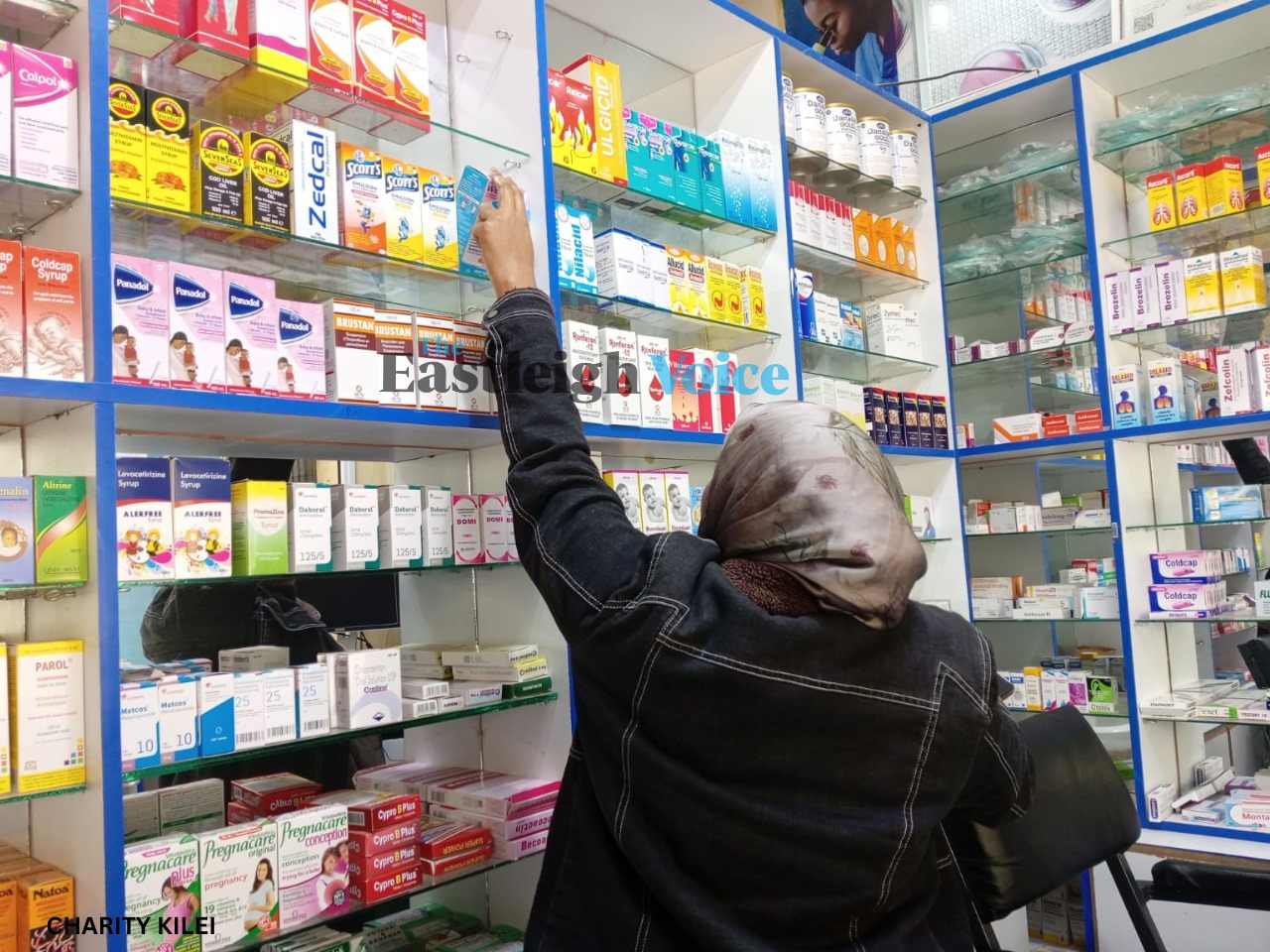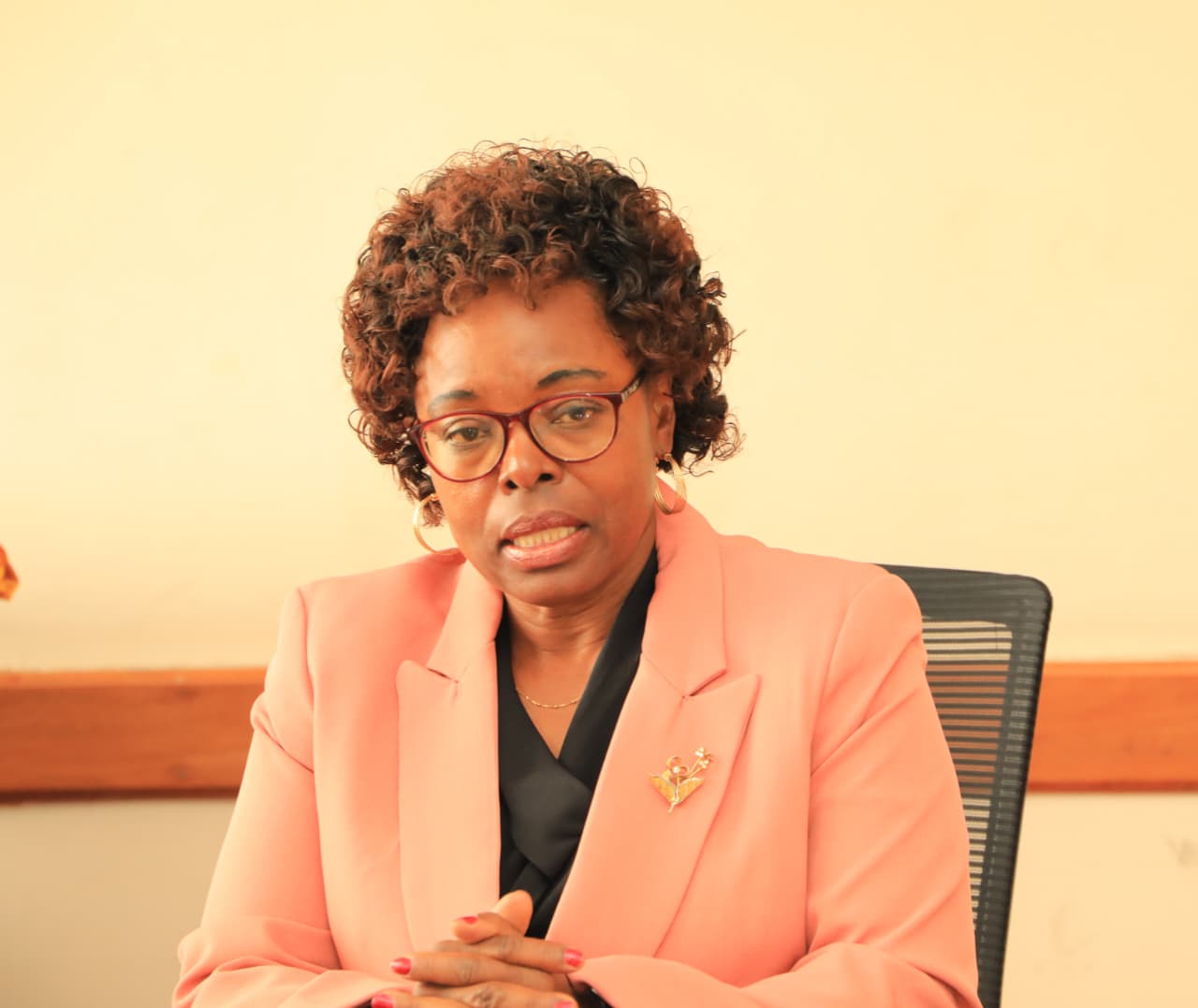Customer misconceptions and drug misuse fuel antimicrobial resistance, warns pharmacist

Fawdowsa stresses the importance of trusting pharmacists and following their advice, as it can significantly impact treatment outcomes and help combat the rising issue of antimicrobial resistance.
Faudoswa, a pharmacist, remembers a specific incident when a middle-aged woman accused her of incompetence. This outburst followed Faudoswa's suggestion of an alternative medication instead of the one shown in a picture the woman had provided, due to its potential consequences.
People appreciate having their opinions valued, but pharmacists often struggle when their advice is ignored in favour of clients choosing over-the-counter medications without understanding the risks.
More To Read
- Government orders supermarkets, retailers to cease selling unregistered and counterfeit medicines
- WHO warns of rising antimicrobial resistance in fungal infections
- Ministry warns Kenyans on escalating antibiotic resistance
- African nations pledge to boost local manufacturing of medical products
- Kenya leads push for stronger regulation of medicines, vaccines in Africa
- WHO sounds alarm: Antibiotic resistance rising fast, puts millions at risk worldwide
The "customer is always right" mentality complicates their work, as they face daily challenges and conflicting demands. This mindset and lack of awareness significantly contribute to the surge in antimicrobial resistance, a global issue exacerbated by patients' attitudes.
Antimicrobial resistance (AMR) happens when germs like bacteria, viruses, fungi, or parasites change in a way that makes medicines, such as antibiotics or antiviral drugs, less effective or completely ineffective. This means that infections become harder to treat, which can lead to more severe illnesses and a higher risk of spreading diseases.
Yusuph Njoroge, 25, has never completed a single prescription in his life, despite regularly buying over-the-counter painkillers and antibiotics.
"The last time I finished a dose was when I was a child, and my mother gave me the medication. Since then, whenever I could buy or get medication myself, I’ve never completed a dose," Yusuph says.
Like many others, Yusuph only takes medication until he starts feeling better, then stops, saving the rest for the next time he gets sick.
"Whether it’s for malaria, stomach aches, or painkillers, I only take them for a day or two. Once I feel better, I stop taking them. I don’t like medicine because it ruins my taste buds."
Yusuph also admits that he often goes to the pharmacy with a specific drug in mind and insists on getting it because that’s what he believes works for him.
 David Njoroge is a boda boda rider in Eastleigh sharing his experience with Over-the-counter drugs. (Charity Kilei, EV)
David Njoroge is a boda boda rider in Eastleigh sharing his experience with Over-the-counter drugs. (Charity Kilei, EV)
David Mbone, a resident of Eastleigh, takes his prescription drugs more faithfully than Yusuph, missing doses only on rare occasions. “When I’m sick, I rarely rely on my judgment because I’m not a doctor. I trust those who have studied the medications and understand their effects,” David explains.
As a result, David rarely falls ill. “Mostly, I buy over-the-counter painkillers, and even then, I ask questions because I believe that’s the purpose of having pharmacists available.”
Grace Njoki, a businesswoman in Eastleigh, often faces situations where she needs medication but doesn’t have enough money, forcing her to bargain with pharmacists.
“Illnesses, especially things like diarrhoea from the food we sometimes eat, are unpredictable. In those moments, I buy what I can afford to ease the pain,” Grace says.
However, Grace frequently forgets to purchase additional medication once the pain subsides. “Many times, the pharmacist reminds me to finish the full dose, but I either forget or don’t have extra money, so I just don’t return to buy more once I’m feeling better.”
Grace has been wary of taking medication since childhood, preferring injections over pills, although financial constraints sometimes limit her options.
Fawdowsa Nabosu, a pharmacist at Anisaa Hospital in Eastleigh, encounters many challenging situations but continues to provide advice due to its crucial importance, despite it often being ignored.
"Patients frequently come in needing more than just over-the-counter drugs, yet they insist they know their bodies and that the medications they prefer always work for them," she says.
Fawdowsa notes that sometimes patients request specific medications, but when asked about their symptoms, it becomes clear that the medication they're asking for is entirely inappropriate for their condition.
"We've had situations where I’ve tried to advise a patient, even calling the doctor to clarify the purpose of the drug, only for them to walk out and purchase exactly what we advised against. Some patients come with recommendations from friends and refuse to consider alternatives."
She highlights that painkillers and antibiotics are frequently misused, with many patients failing to complete their prescribed doses.
"We often face situations where clients don’t have enough money for a full prescription or only buy a one-day dose. When we insist on completing the dose, some clients choose to go elsewhere, which puts us in a difficult position. We’re seeing a rise in drug resistance and recurring illnesses that could be prevented if patients followed their doctors' instructions."
Fawdowsa stresses the importance of trusting pharmacists and following their advice, as it can significantly impact treatment outcomes and help combat the rising issue of antimicrobial resistance.
According to the Institute for Health Metric, Kenya recorded 8,500 deaths directly attributed to Antimicrobial Resistance (AMR), and 37,300 deaths associated with AMR in 2019.
The World Health Organisation (WHO) identifies AMR as a leading global cause of death, responsible for 1.3 million deaths annually. AMR occurs when bacteria, viruses, fungi, and parasites evolve and become resistant to medicines, making infections harder to treat and increasing the risks of disease spread, severe illness, and death. The WHO warns that without effective interventions, annual deaths due to AMR could rise to as many as 10 million by 2050.
Top Stories Today













































